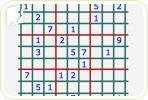Menopausal memory loss is a symptom that can affect every aspect of a woman's life, from her professional performance to her personal relationships. Caused primarily by hormonal imbalances, memory issues during menopause are characterized by concentration difficulties, inability to absorb, process, and recall information, and struggling to adapt to changes in routine. The most effective way to combat and prevent the onset of memory issues is to regularly stimulate the brain with activities that require prolonged concentration and use of the cognitive functions, such as reading.
How Could Reading Prevent Memory Loss?
One of the most important factors for strengthening cognition is to regularly engage the brain for prolonged periods. Think of concentration as a muscle; the more you use it, the stronger it will become. Reading demands continued attention and uses short-term memory - the very factors that characterize concentration. Reading for around half an hour every day stimulates the cognitive functions in a concentrated way. For many people, reading is a form of escapism. Absorbing the mind in this way can also act as a distraction and relieve other factors that can impair concentration, like anxiety.
Don't be too quick to reject the idea of reading in your free time; even if you claim that you're “not a reader,” the chances are you can find something that will engage you. Choose a genre and subject matter that interest you. Perhaps you enjoy autobiographies or informative articles?
Of course, problematically, difficulty concentrating is likely to obstruct your experience of reading. Read on for tips on efficient, concentration-conducive reading.
How to Read Efficiently
Concentration issues may not only cloud your experience of reading for pleasure; they can impact your professional performance, too. However, there is nothing to say that the symptom cannot be combated. Like other skills, concentration can be worked on and improved.
Whether you are reading for pleasure or for work, it is important to establish a peaceful reading environment, free from distractions. Put your phone away, make sure you are at a comfortable temperature in a light, well-ventilated space, and sitting comfortably. Set aside ample time for reading so you are not distracted or rushed by a time restriction.
If you are reading for the purpose of obtaining information, begin by skimming the piece. Take in titles, subtitles, and highlighted or bold words, to get an overview of the text and identify the paragraphs of interest to you.
Now, begin to read. It is a good idea to read with a pen in hand so you can underline key ideas or words of significance without interrupting the flow of your reading or losing concentration. Bear in mind that, generally, every paragraph of a piece will contain one main idea, which is usually summed up in the topic sentence (i.e., the first or last sentence of the paragraph). As long as you have understood the key idea of each paragraph, you have most likely understood the piece as a whole.
While reading is a great way to stimulate the cognitive functions and prevent the onset of memory lapses, not everyone enjoys reading; remember, there are other ways to keep your mind agile if reading is not for you. Try other brain-stimulating activities, such as playing board games, completing puzzles, or learning a new skill, like a musical instrument or foreign language.
Like reading there are different strategies for coping with memory loss. The most effective form of stimulation will be the one you engage in most, so pick activities you will look forward to, rather than dread.
Sources
- Kansas State University. (1997). Improving your Concentration. Retrieved June 16, 2014, from http://www.k-state.edu/counseling/topics/career/concentr.html
- National Institute on Aging. (2014). Cognitive training shows staying power. Retrieved June 16, 2014, from http://www.nia.nih.gov/newsroom/2014/01/cognitive-training-shows-staying-power
- Office on Women's Health. (2010). Healthy aging. Retrieved June 16, 2014, from http://womenshealth.gov/aging/mental-health/aging-brain.html
- University of New South Wales. (2014). Tips for Effective Reading. Retrieved June 16, 2014, from https://student.unsw.edu.au/effective-reading
- University of Rochester Medical Center. (2012). "Brain fog" of Menopause Confirmed. Retrieved June 16, 2014, from http://www.urmc.rochester.edu/news/story/index.cfm?id=3436
- Weber, M. & Mapstone, M. (2009). Memory complaints and memory performance in the menopausal transition. Menopause, 16(4), 694-700. doi: 10.1097/gme.0b013e318196a0c9




